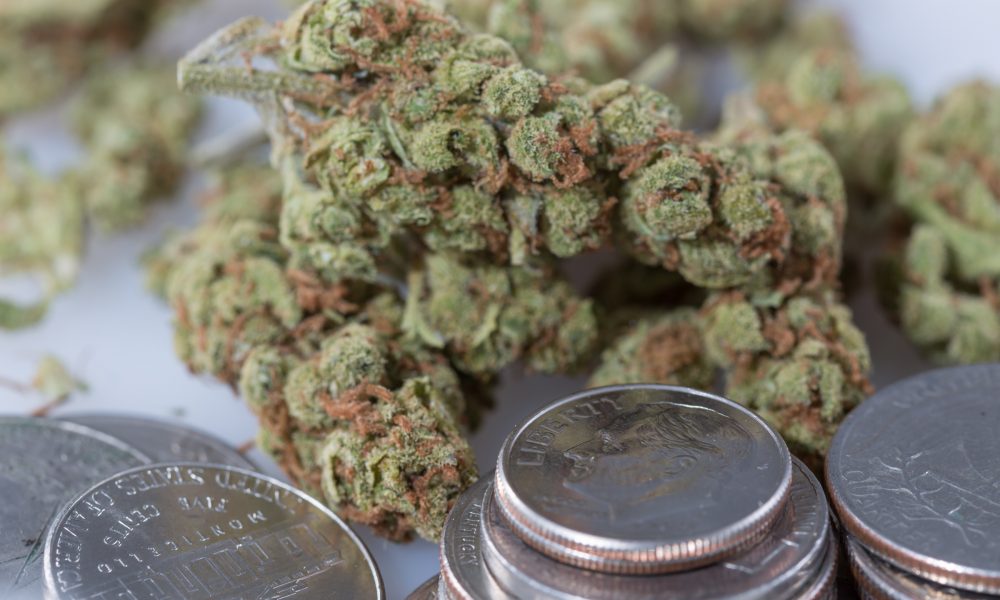The governor of Illinois has signed a budget bill that includes provisions that will allow licensed marijuana businesses to take state tax deductions that they’re currently prohibited from utilizing at the federal level due to an Internal Revenue Service (IRS) code known as 280E.
Gov. J.B. Pritzker (D) gave final approval to the legislation—which also contains language directing funding to a cannabis development fund and extends a deadline for conditional licensees to find storefronts—last week.
A key section that’s now been enacted decouples marijuana businesses from the federal tax policy, which currently bans the industry from making key deductions that are available to other traditional markets, significantly increasing the effective tax rate that they pay.
Signed, sealed, delivered ✅ pic.twitter.com/EwyoKEJ6oM
— Governor JB Pritzker (@GovPritzker) June 7, 2023
A provision will be added to the state’s existing tax code to allow cannabis business deductions for “an amount equal to the deductions that were disallowed under Section 280E of the Internal Revenue Code for the taxable year” as of the current tax year.
While lawmakers passed the budget with the handful of marijuana provisions included, separate broader cannabis omnibus legislation that would have restricted delta-8 THC products stalled ahead of the end of the session.
—
Marijuana Moment is tracking more than 1,000 cannabis, psychedelics and drug policy bills in state legislatures and Congress this year. Patreon supporters pledging at least $25/month get access to our interactive maps, charts and hearing calendar so they don’t miss any developments.![]()
Learn more about our marijuana bill tracker and become a supporter on Patreon to get access.
—
With respect to the tax section, Illinois is joining several other states that have moved to enact rules to treat the marijuana industry like a traditional market by providing the tax relief option.
For example, the governor of Connecticut also signed budget legislation on Monday that includes provisions to provide state-level tax relief to licensed marijuana businesses as a federal 280E workaround for the industry.
Also, the governor of New Jersey signed legislation last month to allow licensed marijuana businesses to deduct certain expenses on their state tax returns as a partial IRS 280E fix. Lawmakers in Iowa, New York, Pennsylvania and Virginia have similarly pursued tax relief for each of their state’s marijuana markets.
The New York Senate passed a bill last week to provide a 280E fix for New York City cannabis companies at the local level because the already-enacted statewide reform didn’t affect the city’s separate tax law.
At the congressional level, Rep. Earl Blumenauer (D-OR) reintroduced a bill last month that would amend the IRS code to allow state-legal marijuana businesses to finally take federal tax deductions that are available to companies in other industries.
He told Marijuana Moment that he’s “absolutely convinced when we are able to fully deduct their business expenses that there actually will be more revenue collected because people will comply fully with the law.”
For the time being, the marijuana industry continues to face tax policy challenges under the umbrella of prohibition. And as the Congressional Research Service (CRS) noted in a 2021 report, IRS “has offered little tax guidance about the application of Section 280E.”
IRS did provide some guidance in an update in 2020, explaining that while cannabis businesses can’t take standard deductions, 280E does not “prohibit a participant in the marijuana industry from reducing its gross receipts by its properly calculated cost of goods sold to determine its gross income.”
The IRS update seemed to be responsive to a Treasury Department internal watchdog report that was released in 2020. The department’s inspector general for tax administration had criticized IRS for failing to adequately advise taxpayers in the marijuana industry about compliance with federal tax laws. And it directed the agency to “develop and publicize guidance specific to the marijuana industry.”
Bipartisan and bicameral lawmakers have been working for years to pass legislation that would treat the cannabis sector like other legitimate enterprises, namely through the Secure and Fair Enforcement (SAFE) Banking Act, which received a hearing in the Senate Banking Committee this month and is expected to head to a markup “soon.”
Anti-Drug Group Claims Marijuana Banking Bill Would Increase Car Crashes And Hospitalizations
Read the full article here

